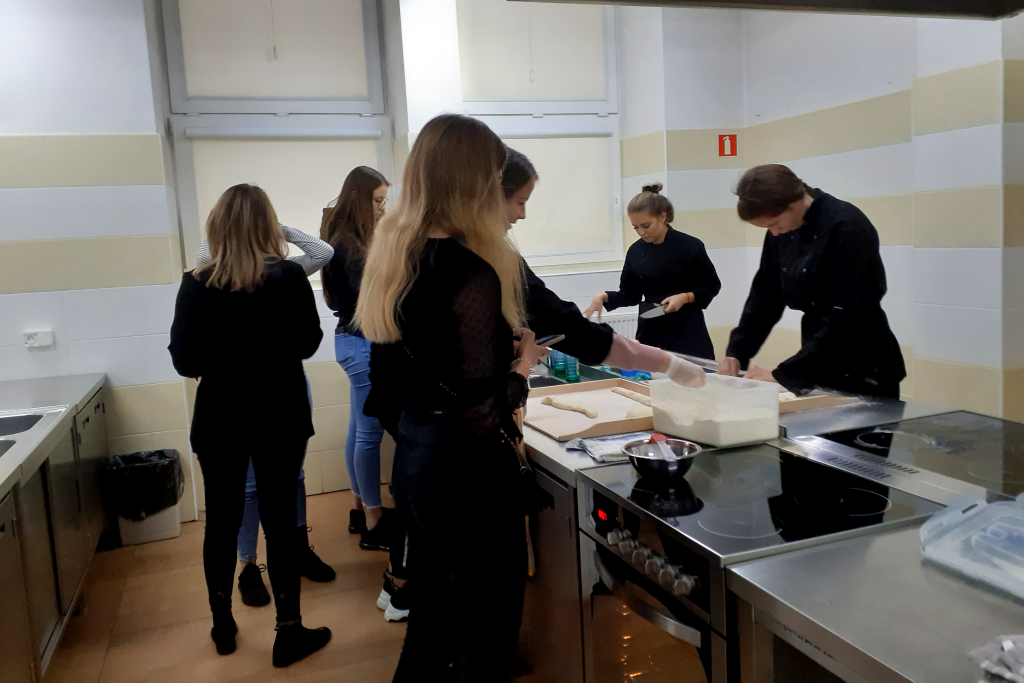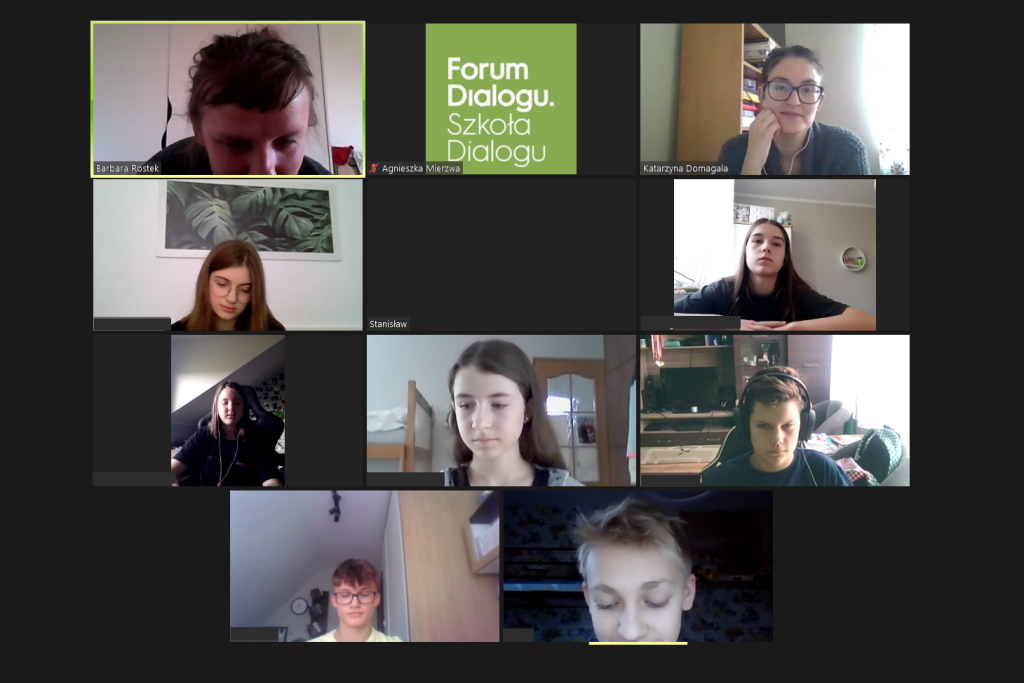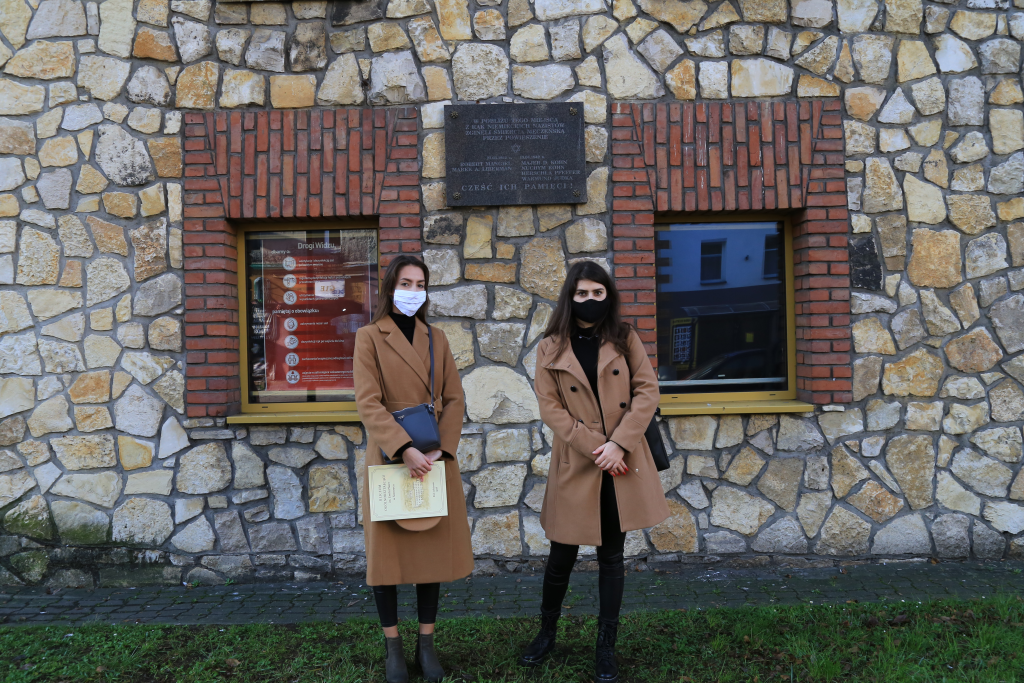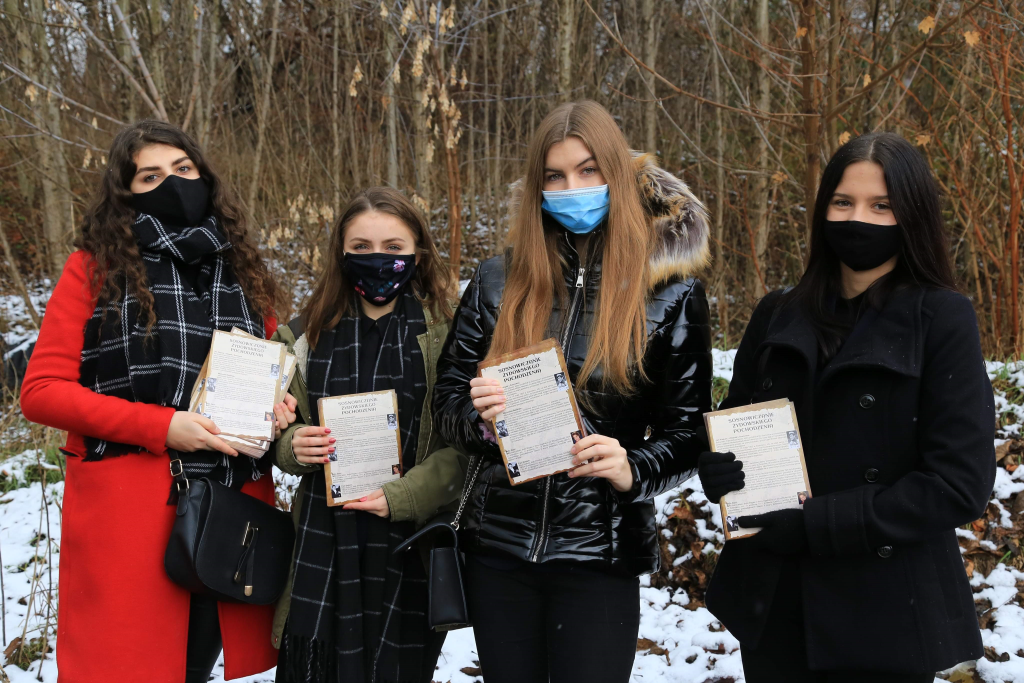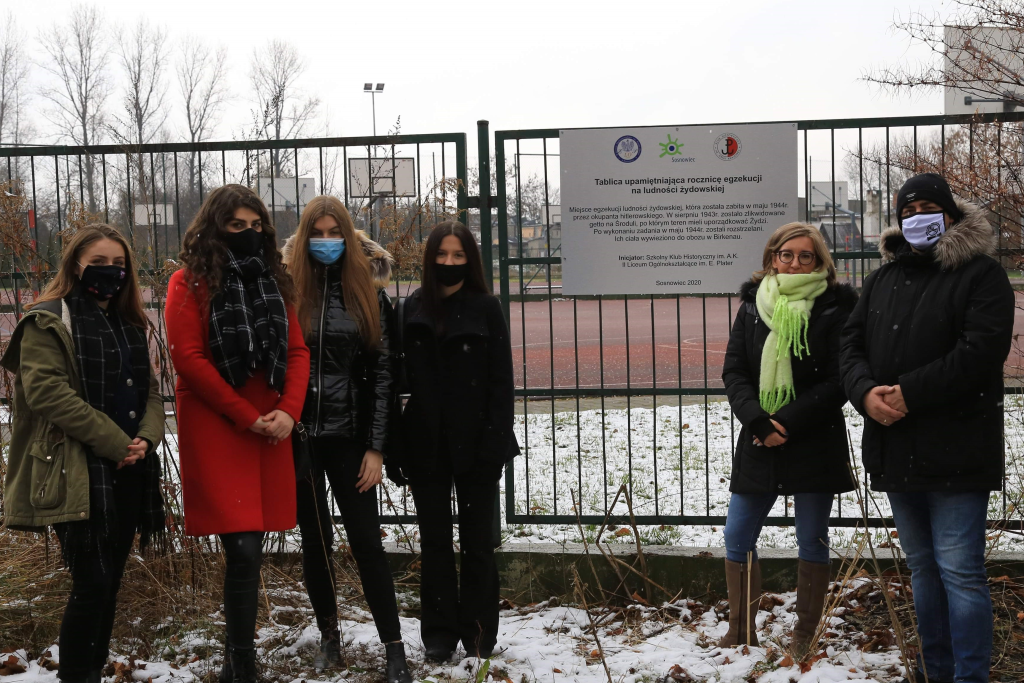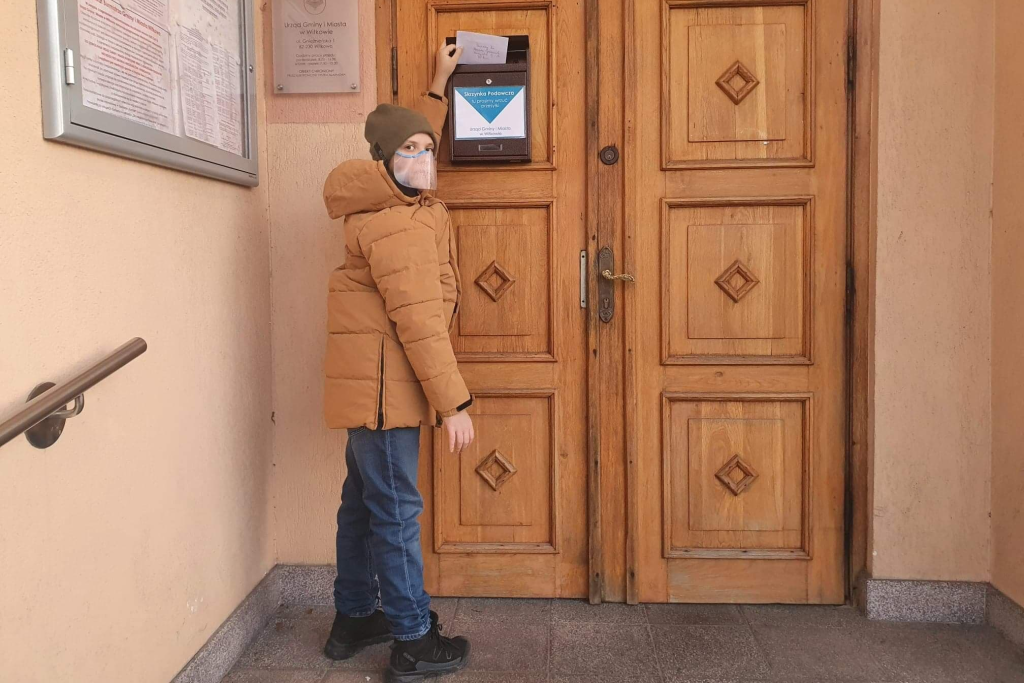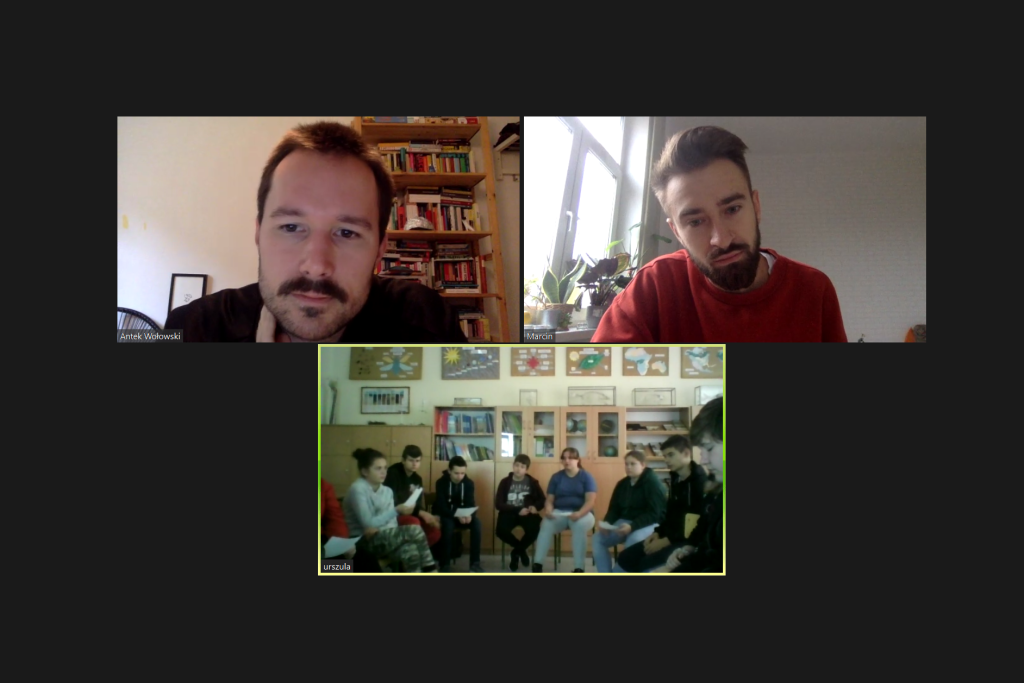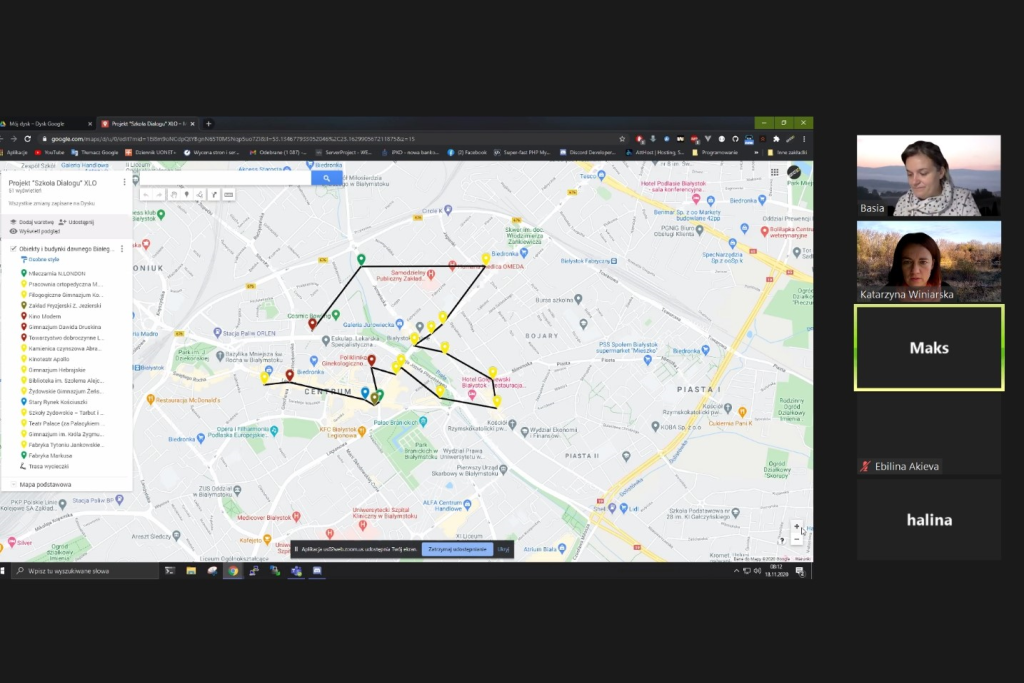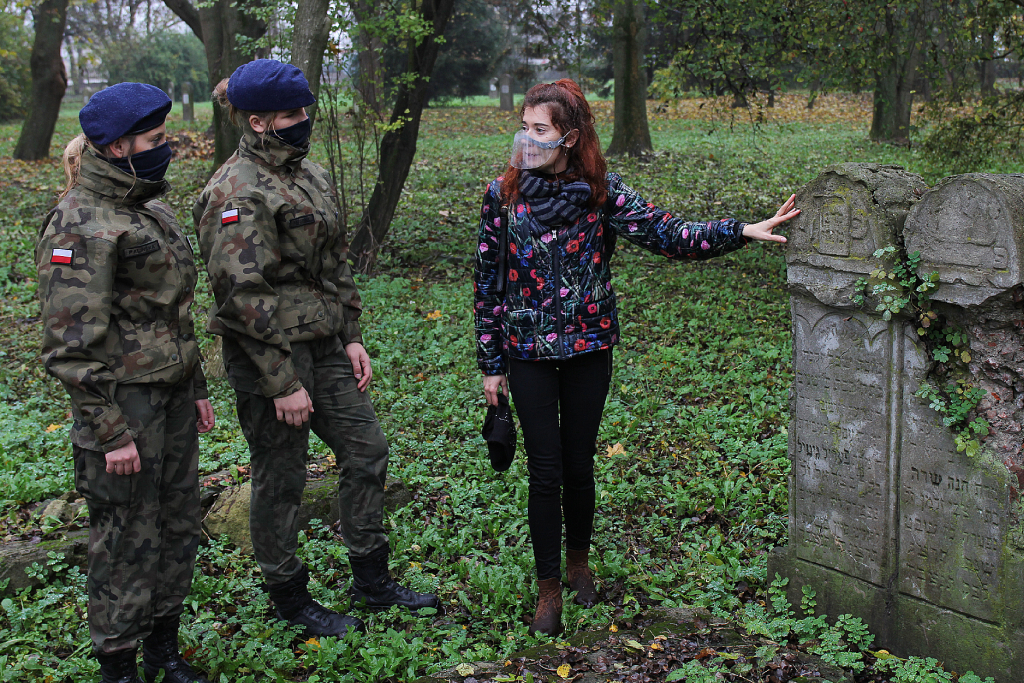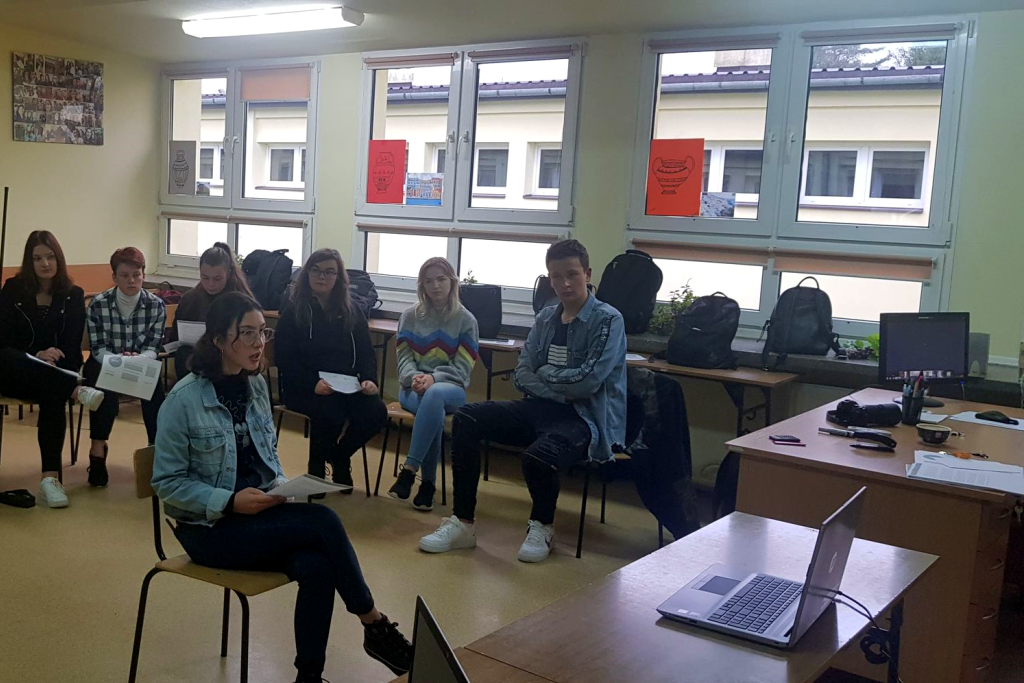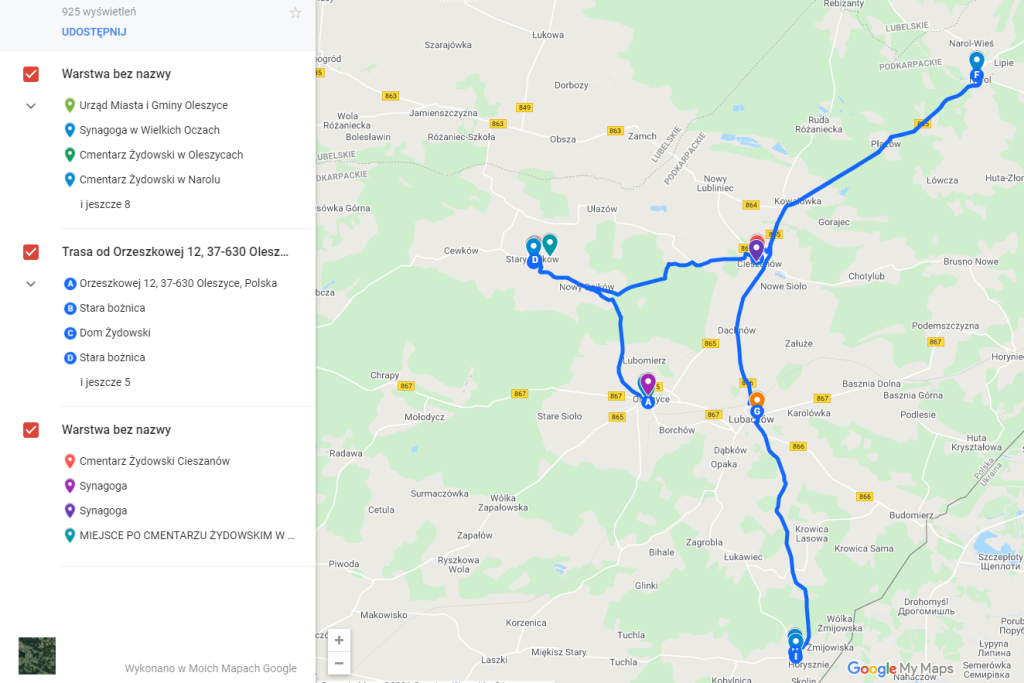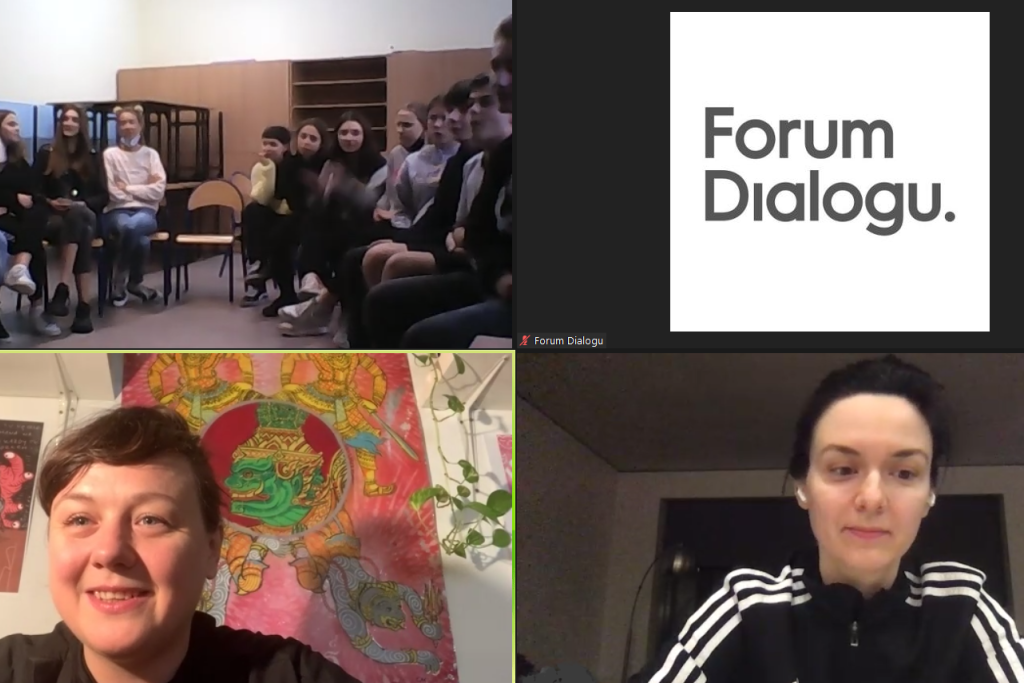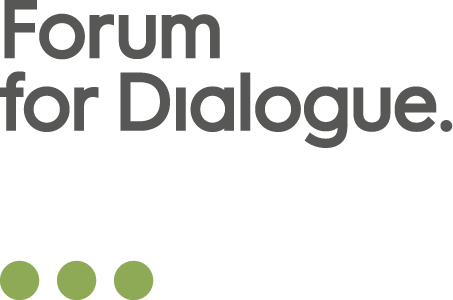When, at the beginning of 2020, we were planning the upcoming semesters of the School of Dialogue program no one could suspect that within weeks the entire world would change so dramatically.
Students and teachers had to change the way they learn and teach, schools were closed down, and education, together with other aspects of daily life, moved online. For the first time since its launching in 2008, the future of the School of Dialogue program was uncertain. We considered how a program based on group work and direct interaction would function when done remotely. We worried about conducting workshops online, as well as about student engagement and their ability to find information necessary to complete the program. We are happy to report that none of it turned out to be an issue, and the 2020 School of Dialogue was our first ever online edition.
Fourteen schools, 22 teachers, and 200 students took up the challenge to go digital and explore the past of their town to commemorate its Jewish community.
Young people from Białystok, Bielsko-Biała, Chełm, Janowiec, Kraśnik, Oleszyce, Radzyń Podlaski, Płock, Sobków, Sosnowiec, Witkowo, Węgrów, and Załuki transferred the prewar Jewish life of their towns onto online maps, which they made available to the public and shared among their communities. Some of these sites can boast of thousands of unique visitors. The online walking tours include not just information about buildings or other places of importance for the local Jewish community, but also stories of the Jews who lived in them. The students from Dynów translated all the materials put on the map into English, to make it accessible to descendants of Dynów Jews living all over the world.



